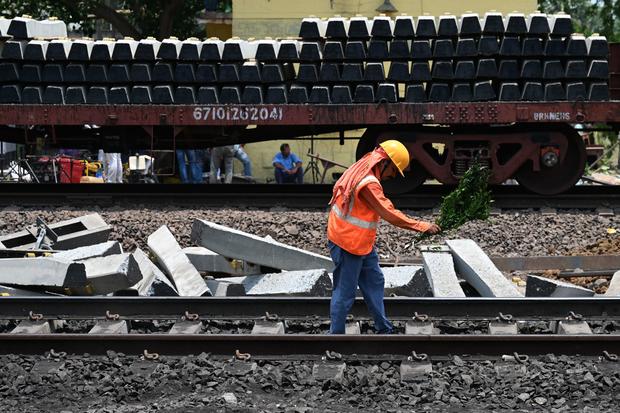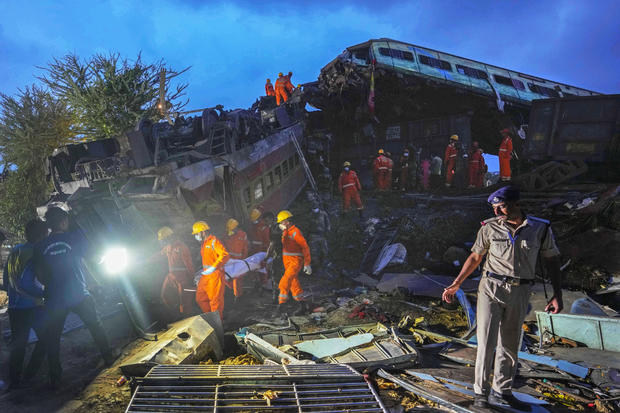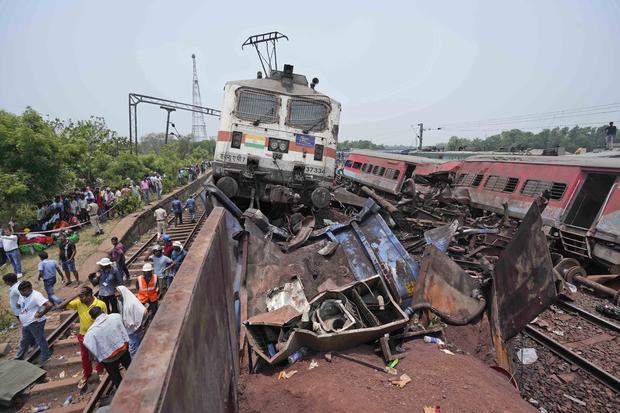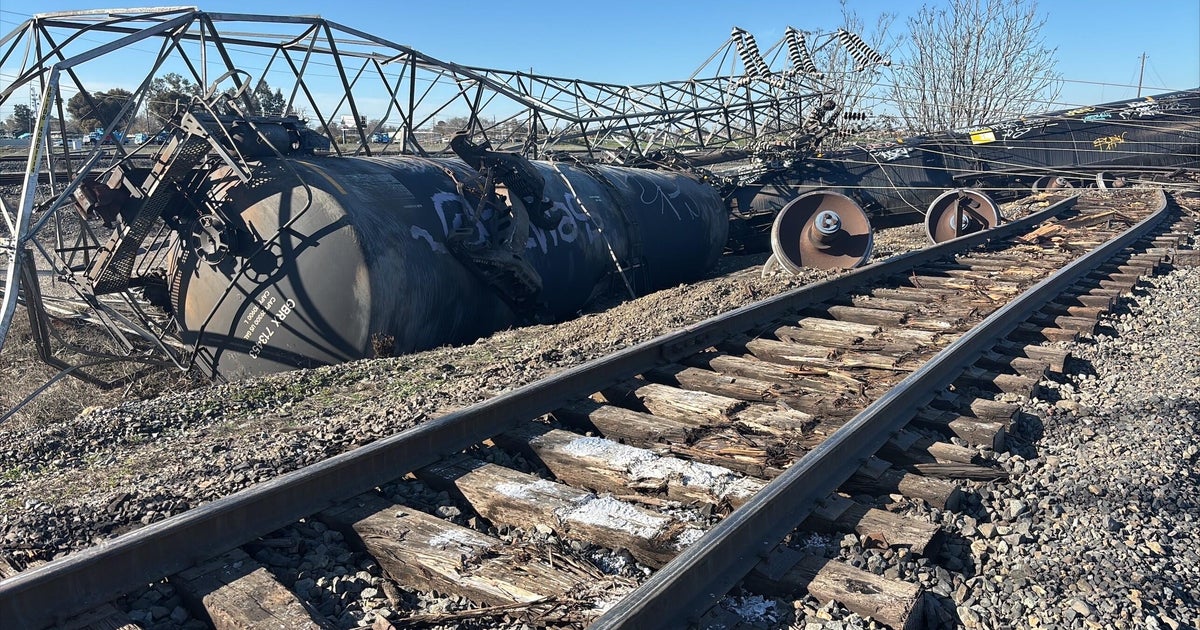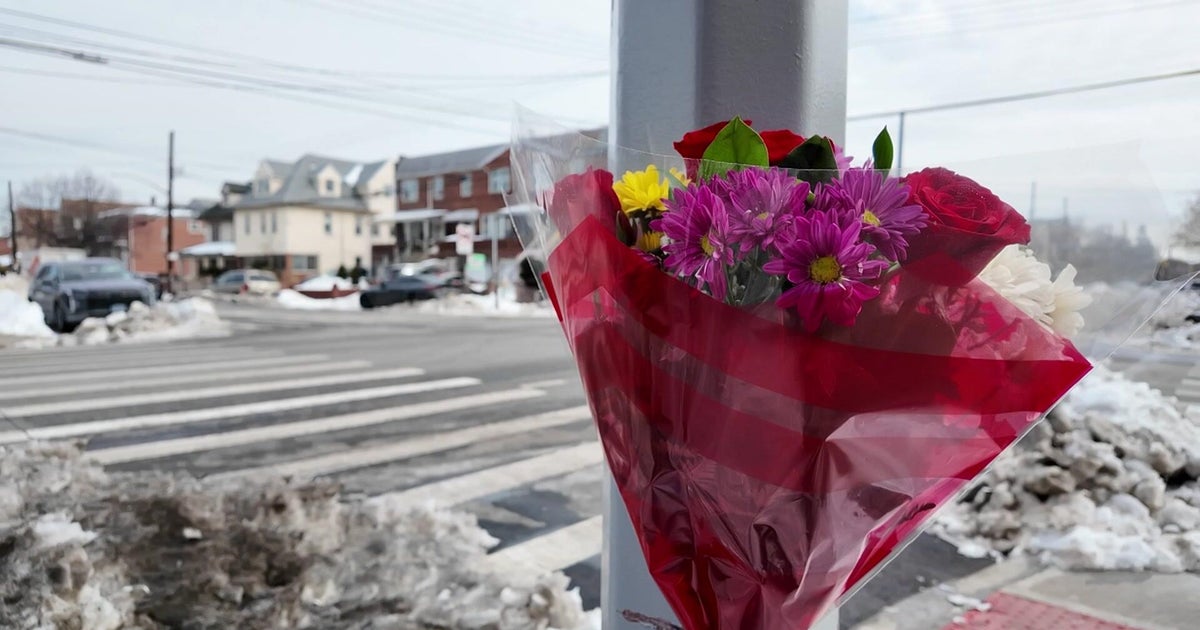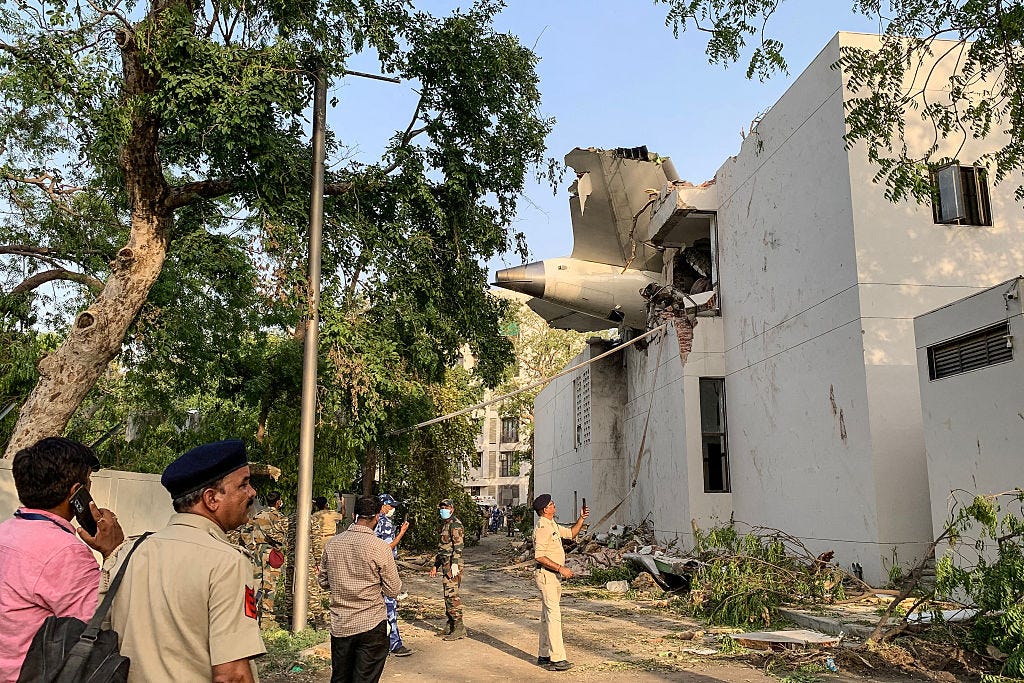India train crash investigators to look at possibility of sabotage after wreck in Odisha kills hundreds
New Delhi — Authorities in India have started investigating what led to the country's deadliest train crash this century. The wreck on Friday, when a passenger train careened into a stationary freight train and was then hit by a third train, left at least 275 people dead and more than 1,000 others injured.
A government official said Sunday that a technical signaling failure might have led to the crash, but on Monday, investigators said they were likely to look at the possibility that someone could have deliberately tampered with the automatic signaling system — generally considered safe and effective — to cause the disaster.
India's Railway Ministry recommended Monday that the Central Bureau of Investigations (CBI), the country's top police agency, which probes high-profile criminal cases, should investigate Friday's train crash.
"It is being suspected there was some kind of interference with the signaling system," Jaya Verma Sinha, a member of India's Railway Board, told reporters Sunday. She said nothing had been ruled out when asked if authorities suspected that someone could have tampered with the electronic system.
On Sunday, Railway Minister Ashwini Vaishnaw said a failure of electronic interlocking — a track management system that places trains on tracks to avoid collisions — could have led to the crash.
"It is about point machine, electronic interlocking. The change that occurred during electronic interlocking, the accident happened due to that," said the minister. He mentioned finding "people responsible" for the crash, but didn't suggest the possibility of deliberate actions.
"I do not want to go into details," Vaishnaw said Sunday. "I will just say that the root cause and the people responsible have been identified."
India's Prime Minister Narendra Modi also referenced "people responsible" for the crash when he visited the accident site in the eastern state of Odisha on Saturday.
"Those found guilty will be punished stringently," the leader said, vowing that "no one will be spared."
A panel of investigators appointed by the Railway Ministry was already investigating the train crash, in addition to a separate probe by the Commissioner of Railway Safety. They were expected to wrap up their investigations within two weeks and submit a report to the government. But the government was likely to accept the Railway Ministry's recommendation for another probe by the CBI.
The crash happened in Odisha on Friday when the Coromandel Express passenger train hit a stationary freight train and derailed. The derailed train's coaches fell onto an adjacent track where another train, the Howrah Express, coming from the opposite direction, rammed into the derailed coaches.
The death toll from the crash was initially put at 288, but that was revised down to 275 later Sunday as officials said some bodies had mistakenly been counted twice.
Many of the roughly 1,000 people injured had been released from hospitals by Monday but about 400 were still being treated, some for very serious injuries.
Some people were still listed as missing, too.
Rescuers had to cut through metal train compartments to retrieve victims after the disaster. Cranes and other heavy machinery were used to move the mangled train coaches, and then to repair and start restoring the tracks.
At least one track was operational again by Monday afternoon, but there were still cancellations on the lines.
India has one of the largest railway networks in the world. An estimated 13 million people travel on the country's trains daily. But despite huge recent investments aimed at modernizing the network, a large chunk of the country's railway infrastructure is dated.
